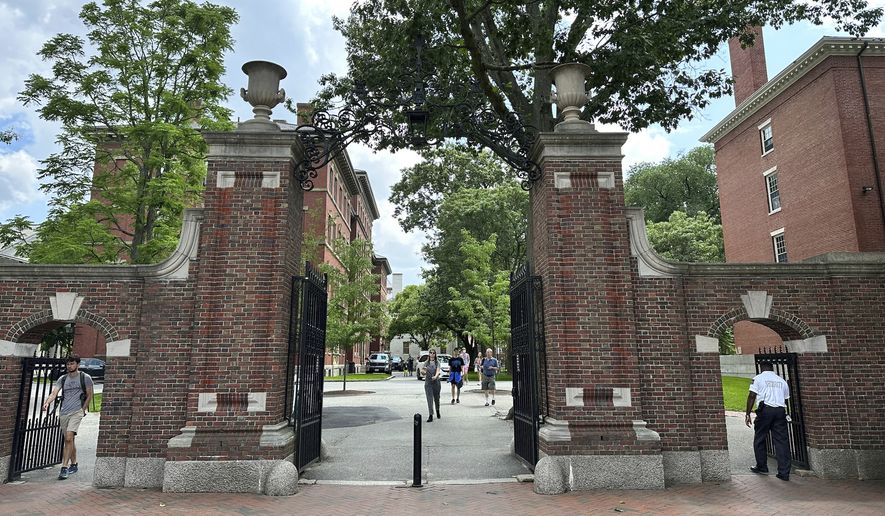Stanford, Northwestern and the Ivy League universities have collected a combined $33 billion in taxpayer-funded grants and contracts and another $12 billion in tax breaks on their endowments over the last five years, according to new data from OpenTheBooks.com.
That $45 billion is now being called into question as lawmakers fume over the schools’ handling of pro-Palestinian sentiments on campus in the wake of Hamas’ attack on Israel last month.
Adam Andrzejewski, founder of the government spending watchdog OpenTheBooks, said Americans should be surprised by the significant amount of support they are giving to the schools.
“With the U.S. taxpayer subsidies, tax breaks and federal payments into these 10 elite universities pushing $7 billion per year, it’s time to revisit the definition of a public charity,” he said. “Collectively, these schools have gamed the tax code for vast institutional enrichment.”
Stanford University led the way with $7 billion in grants and contracts. Columbia University was second with $5.9 billion. Harvard University was fifth with $3.3 billion over the 2018-2022 period. Dartmouth College was the only Ivy not to get at least $1 billion.
OpenTheBooks said the massive amount of money makes the schools “more federal contractor than they are educator.”
The largesse spanned administrations, with both the Trump and Biden teams pouring taxpayer cash into the Ivies and other elite universities. Over the five years studied, the schools got between $6 billion and $7 billion in grants and contracts each year.
Schools have defended the money, saying it funds cutting-edge medical science and other research.
OpenTheBooks, though, said the universities seem to do fine raising money on their own without Uncle Sam’s help.
Endowments for the 10 schools studied grew from $172.2 billion in 2018 to $237 billion at the end of last year and OpenTheBooks projected the total will reach $1 trillion over the next 25 years.
Some of that is from new donations, but much of it is from investment growth. According to the study, if the schools were ordinary Americans, they would pay a capital-gains tax of 20% on the growth.
But because the schools operate as nonprofits, they only pay a 1.4% “excessive endowment tax,” which was imposed by then-President Trump’s 2017 tax overhaul and applies to schools with endowments of at least $500,000 per student.
OpenTheBooks said the schools avoided $13 billion in taxes, thanks to their status.
“Who knew that you were subsidizing the wealthy, elite universities? They don’t need taxpayer help,” Mr. Andrzejewski said.
Some of the schools also collected COVID-era bailout money from the Higher Education Emergency Relief Fund. Other schools, including Harvard and Stanford, turned the money down.
The Israel-Hamas war has put a new focus on the federal cash, with several Republicans calling on the schools to be stripped of federal support.
Among them are several presidential hopefuls and top congressional leaders.
Some donors to the schools have also balked at their handling of the matter. Billionaire Cliff Asness said denying the universities money “appears to be one of the only paths” to getting the schools’ attention.
The schools’ defenders fretted about the lack of academic freedom if schools kowtowed to donor threats. But the schools have not been shy about condemning the views of conservatives, leading critics to wonder about a double standard at play in their reluctance to condemn pro-Hamas students.
OpenTheBooks pointed to Stanford’s designation last year of the word “America” as “harmful language” as one example of what schools have allowed in the past.
• Stephen Dinan can be reached at sdinan@washingtontimes.com.




Please read our comment policy before commenting.